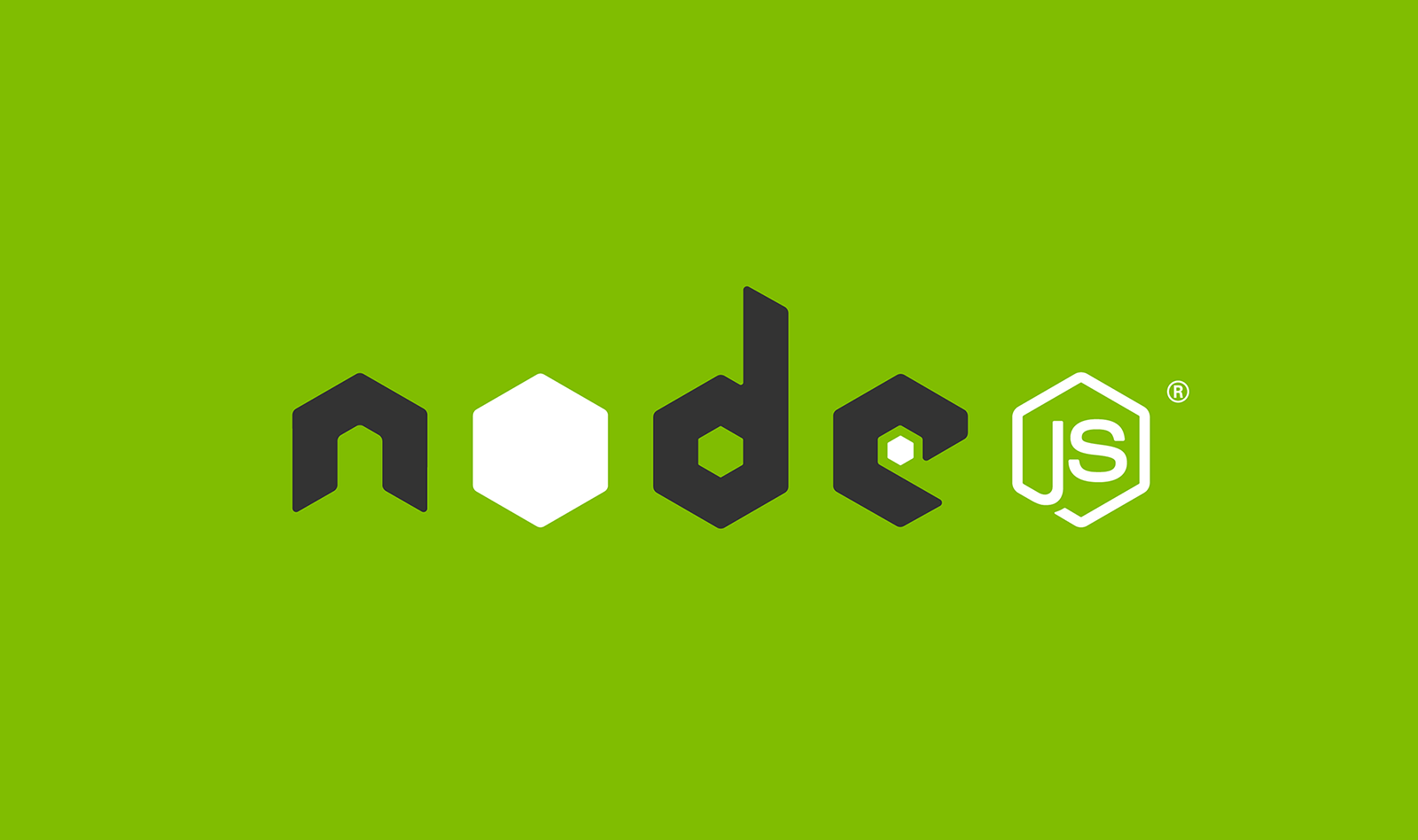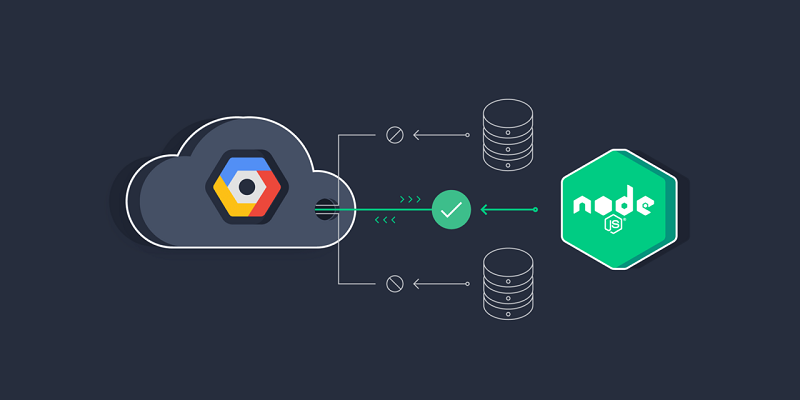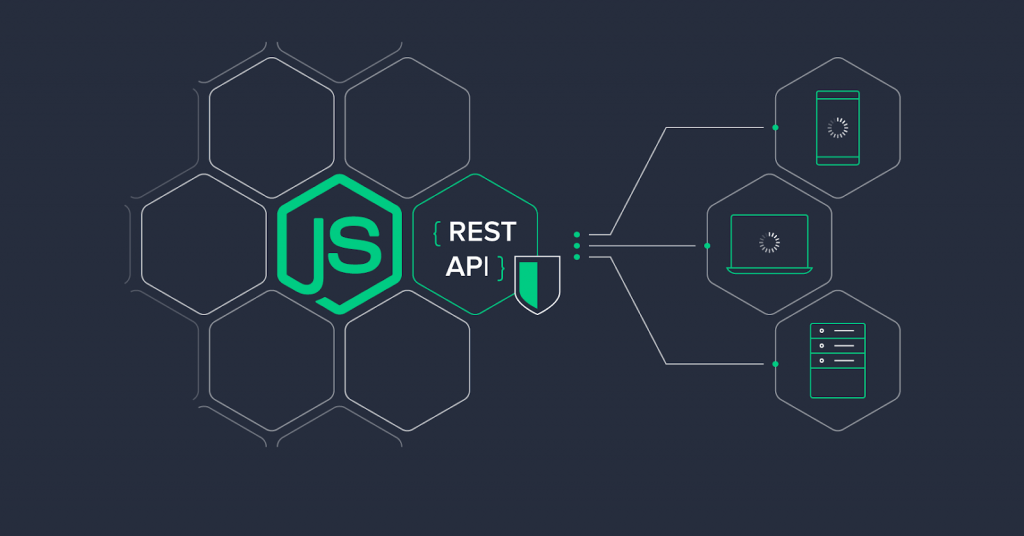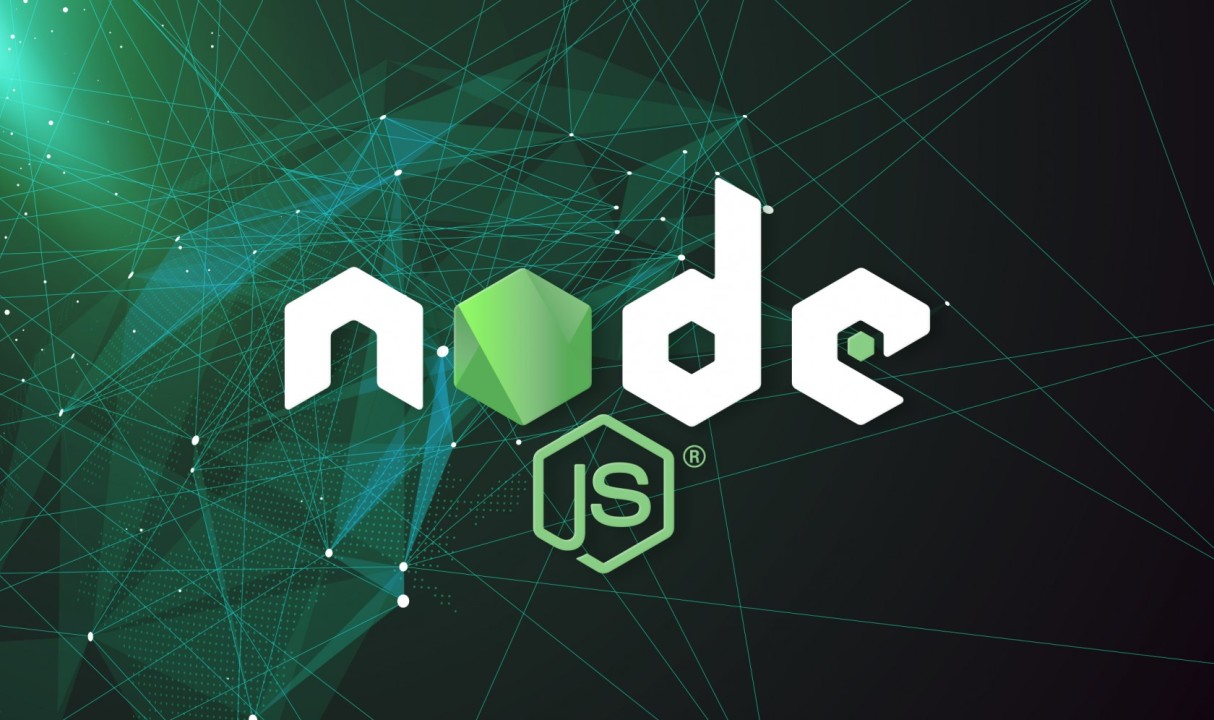NodeJS has become one of the most popular and in-demand technologies for web development. With its ability to handle heavy loads, real-time applications, and efficient code execution, it’s no wonder that more and more businesses are turning to NodeJS for their web development needs.
However, with the rise in demand for NodeJS, comes the need for reliable and efficient hosting solutions. After all, without a proper hosting environment, even the best NodeJS applications can suffer from slow loading times, downtime, and other performance issues.
In this comprehensive guide, we will dive into the world of NodeJS hosting and discuss everything you need to know in order to make an informed decision for your business. From understanding the basics of NodeJS hosting to exploring the top hosting providers and their features, we’ve got you covered. So let’s get started!
Overview of NodeJS Hosting
Before we delve into the specifics of NodeJS hosting, let’s first understand what NodeJS is and how it differs from other web development platforms.

Node.js is a JavaScript runtime environment that is open-source, cross-platform, and utilizes Chrome’s V8 JavaScript engine
What is NodeJS?
NodeJS is an open-source, cross-platform JavaScript runtime environment built on Chrome’s V8 JavaScript engine. It was created by Ryan Dahl in 2009 and has since gained immense popularity among developers for its efficient handling of asynchronous I/O and event-driven architecture.
Unlike traditional web development platforms, which use multi-threading to handle requests, NodeJS uses a single-threaded model with an event loop. This allows NodeJS to handle multiple concurrent connections without creating new threads for each request, making it highly scalable and efficient.
Why Choose NodeJS?
There are several reasons why businesses and developers choose NodeJS for their web development needs. Here are some of the key benefits of using NodeJS:
- Efficient Handling of Heavy Loads: As mentioned earlier, NodeJS is known for its ability to handle heavy loads, making it ideal for real-time applications or websites with a high amount of traffic.
- Fast Execution: NodeJS uses the V8 JavaScript engine, which is known for its fast code execution. This makes NodeJS perfect for building applications that require quick response times.
- Easy Scalability: With its single-threaded and event-driven architecture, NodeJS allows for easy scalability, as adding more resources can increase the number of concurrent connections it can handle.
- Cost-effective: Since NodeJS uses JavaScript, developers who are familiar with this language can easily transition to building applications with NodeJS, saving time and resources.
- Large Community Support: NodeJS has a large and active community of developers who contribute to its growth and provide support through forums, blogs, and open-source libraries.
Now that we have a basic understanding of NodeJS let’s explore the world of NodeJS hosting.
The Different Types of NodeJS Hosting
When it comes to hosting NodeJS applications, there are several options available in the market. Each type of hosting offers different features and caters to different business needs. Let’s take a look at the three main types of NodeJS hosting:

Every hosting type provides distinct features tailored to various business requirements
Shared Hosting
Shared hosting is one of the most common hosting solutions used by businesses and individuals alike. In shared hosting, multiple websites are hosted on a single server, and resources such as CPU, RAM, and storage are shared among all the websites.
Advantages
- Affordability: Shared hosting is the cheapest form of hosting available, making it ideal for small businesses and personal websites.
- Ease of Use: Shared hosting plans come with pre-installed control panels, making it easier for non-technical users to manage their website.
- Technical Maintenance: With shared hosting, the hosting provider takes care of all the technical maintenance, including server updates and security patches.
Disadvantages
- Limited Resources: Since resources are shared among multiple websites, if one website experiences an increase in traffic or resource usage, it can affect the performance of other websites on the same server.
- Security Risks: In shared hosting, all websites share the same server and IP address, making them more vulnerable to security threats. If one website on the server is compromised, it can impact the security of other websites as well.
- Lack of Customization: Shared hosting plans offer limited customization options, making it difficult to install and configure third-party software or make changes to the server setup.
Virtual Private Server (VPS) Hosting
A VPS hosting plan involves partitioning a physical server into multiple virtual private servers, each with its own dedicated resources. This offers businesses the flexibility and control of a dedicated server at a fraction of the cost.
Advantages
- Scalability: With VPS hosting, businesses can easily scale their resources as needed, without having to worry about the impact on other websites.
- Customization Options: VPS hosting allows for more customization in terms of server setups, software installations, and configurations, giving businesses more control over their hosting environment.
- Improved Security: Each VPS is isolated from the others, providing better security and protection against cyber threats.
- Cost-effective: While VPS hosting is slightly more expensive than shared hosting, it is still a cost-effective option for businesses looking for dedicated resources without breaking the bank.
Disadvantages
- Technical Knowledge Required: Unlike shared hosting, VPS hosting requires some technical knowledge to manage and maintain the server.
- Additional Costs: While VPS hosting may be more affordable than dedicated hosting, it still incurs additional costs compared to shared hosting plans.
- Server Management: With VPS hosting, the responsibility of managing and maintaining the server falls on the business, unless they opt for managed VPS hosting, which can be more expensive.
Dedicated Hosting
Dedicated hosting involves leasing an entire physical server for your website or application. This gives businesses complete control over the server resources and configurations.
Advantages
- High Performance: With dedicated hosting, businesses get access to all the server resources, making it ideal for applications that require high performance and processing power.
- Customization Options: Dedicated hosting offers complete customization of the server environment, allowing businesses to install and configure any software or settings they require.
- Improved Security: Since the server is dedicated to one website or application, there is a lower risk of security breaches.
- No Sharing of Resources: Unlike shared and VPS hosting, there are no other websites or applications sharing the server’s resources, ensuring consistent performance for your website.
Disadvantages
- Higher Cost: Dedicated hosting plans are significantly more expensive than shared and VPS hosting, making them less suitable for small businesses or personal websites.
- Technical Knowledge Required: Dedicated hosting requires a high level of technical expertise to manage and maintain the server, which may not be feasible for all businesses.
- Server Management: Just like VPS hosting, businesses will have to manage and maintain the server themselves unless they opt for managed dedicated hosting, which can be very expensive.
Now that we have explored the different types of NodeJS hosting let us take a look at some of the top hosting providers and their features.
Top NodeJS Hosting Providers
When it comes to choosing a hosting provider for your NodeJS application, there are hundreds of options available in the market. To help you make an informed decision, we have shortlisted the top hosting providers that offer the best features and support for NodeJS hosting.
1. DigitalOcean
DigitalOcean is a cloud computing platform that offers virtual servers (droplets) for developers to deploy and scale their applications. It is known for its user-friendly interface, affordable pricing, and robust infrastructure.
Features
- One-click NodeJS Installation: DigitalOcean offers a one-click installer that allows developers to easily deploy and manage NodeJS applications without any manual configuration.
- Scalability: With flexible droplet options, developers can easily scale up or down their resources based on their application’s needs.
- Great Community Support: DigitalOcean has a large and active community of developers who provide support through forums, blogs, and tutorials.
- Affordable Pricing: DigitalOcean offers competitive pricing, with plans starting as low as $5 per month.
2. AWS (Amazon Web Services)
AWS is a cloud computing platform that offers a wide range of services, including virtual servers, storage, databases, and more. With its robust infrastructure and powerful features, it is a popular choice among businesses of all sizes.
Features
- Elastic Beanstalk: AWS offers Elastic Beanstalk, a service that simplifies the deployment and management of NodeJS applications by handling the underlying infrastructure.
- Scalability: With AWS, businesses can easily scale their resources up or down based on their application’s needs.
- Reliability: AWS boasts a 99.99% uptime guarantee, ensuring that your website or application stays online even during high traffic periods.
- Pay-as-you-go Pricing: AWS offers a pay-as-you-go pricing model, allowing businesses to only pay for the resources they use.
3. Heroku
Heroku is a cloud-based platform that offers a fully managed environment for building, deploying, and scaling applications. It is known for its ease of use and scalability.
Features
- NodeJS Support: Heroku offers native support for NodeJS applications, making it easy for developers to deploy and manage their apps without worrying about server setups.
- Automatic Scaling: Heroku’s platform can automatically scale resources up or down based on the demand, ensuring that your application can handle heavy loads without any performance issues.
- Integrated Database: Heroku offers an integrated and managed database solution, making it easier for developers to store and manage their application data.
- Free Tier: Heroku offers a free tier for developers to test and deploy their applications before upgrading to a paid plan.
4. Microsoft Azure
Microsoft Azure is a cloud computing platform that offers a wide range of services, including virtual machines, storage, databases, and more. It is known for its robust infrastructure and integration with other Microsoft products.
Features
- Azure App Service: Azure offers Azure App Service, which allows developers to easily deploy and manage NodeJS applications without worrying about server configurations.
- High Availability: Azure boasts a 99.95% uptime guarantee, ensuring that your website or application stays online even during high traffic periods.
- Scalability: With Azure, businesses can easily scale their resources up or down as needed, without any downtime.
- Integration with Other Microsoft Services: If your business uses other Microsoft products, such as Office 365 or Dynamics 365, then Azure offers seamless integration between these services, making it a convenient choice.
5. A2 Hosting
A2 Hosting is a reliable and affordable hosting provider known for its fast servers, excellent support, and developer-friendly features.
Features
- Developer-friendly Features: A2 Hosting offers several developer-friendly features, such as SSH access, Git integration, and multiple versions of NodeJS available for installation.
- Fast Servers: A2 Hosting boasts a 20x faster Turbo Server option, which ensures quick loading times for your website or application.
- 24/7/365 Support: A2 Hosting offers 24/7/365 support via live chat, phone, and ticketing system, making it easy to get help whenever needed.
- Anytime Money-back Guarantee: A2 Hosting offers a risk-free anytime money-back guarantee, allowing businesses to try their services without any long-term commitment.
Now that we have explored some of the top hosting providers let us take a look at the factors you should consider before choosing a NodeJS hosting provider.
What to Look for in a NodeJS Hosting Provider
Choosing the right hosting provider is crucial for your NodeJS application’s success. Here are some key factors to consider when evaluating different hosting options:
1. Server Requirements
The first and most important factor to consider is whether the hosting provider supports all the server requirements for your NodeJS application. This includes the version of NodeJS, operating system, database, and other dependencies. Make sure to check the documentation of your application to ensure compatibility with the hosting provider’s environment.
2. Performance and Scalability
Performance and scalability should be top priorities when choosing a hosting provider for your NodeJS application. Make sure to check the specifications of the hosting plans, such as CPU, RAM, and storage, to ensure that they can handle the expected traffic and resource usage. Additionally, look for hosting providers that offer easy scalability options in case your application sees a sudden spike in traffic.
3. Reliability and Uptime Guarantee
Downtime can severely impact your website or application’s user experience and can even result in financial losses for your business. Therefore, it is essential to choose a hosting provider that offers a reliable infrastructure and guarantees a high uptime percentage, usually 99.9% or above.
4. Support and Resources
No matter how technically proficient you are, there will come a time when you require technical support from your hosting provider. Make sure to choose a hosting provider that offers 24/7 customer support through multiple channels, such as live chat, phone, and email. Additionally, look for resources such as knowledge base articles, forums, and tutorials that can help you troubleshoot issues on your own.
5. Pricing and Plans
Pricing is a crucial factor when choosing a hosting provider, especially for small businesses and startups with limited budgets. Compare the pricing and plans of different hosting providers, keeping in mind the resources and features they offer. Additionally, watch out for any hidden fees or additional charges that may increase your overall cost.
Best Practices for Hosting a NodeJS Application
Now that you have chosen a hosting provider for your NodeJS application let us look at some best practices for hosting your application to ensure optimal performance and security.

Node.js is renowned for its extensive collection of open-source libraries, often referred to as dependencies
Keep Your Dependencies Updated
NodeJS is known for its vast ecosystem of open-source libraries, also known as dependencies. These dependencies are essential for the proper functioning of your application and should be kept up-to-date to ensure compatibility with other libraries and patches for any security vulnerabilities.
Enable Caching
Caching can significantly improve the performance of your NodeJS application by storing frequently accessed data in memory. This reduces the number of database requests and improves response times for your application.
Use a Content Delivery Network (CDN)
A CDN is a network of servers distributed globally that cache your website’s static content, such as images, CSS, and JavaScript files. When a user visits your website, the CDN serves these files from the server closest to their location, reducing the loading time for your website.
Implement Monitoring and Alerting System
Monitoring your application’s performance allows you to identify and fix any performance issues before they affect your users. Configure an alerting system that notifies you of any critical errors or unexpected spikes in resource usage, so you can address them timely.
Regular Backups
Regularly backing up your application’s data is crucial for protecting against data loss and ensuring business continuity. Choose a hosting provider that offers automatic backups or set up a regular backup schedule yourself.
Conclusion
In conclusion, NodeJS is a powerful and efficient platform for building modern web applications. When it comes to hosting your NodeJS application, make sure to evaluate the different types of hosting options available and choose a reliable and scalable hosting provider based on your business needs and budget.
Keep in mind the best practices for hosting a NodeJS application to ensure optimal performance and security. With the right hosting environment, your NodeJS application can reach its full potential and provide a seamless experience for your users. So choose wisely and watch your application thrive!



